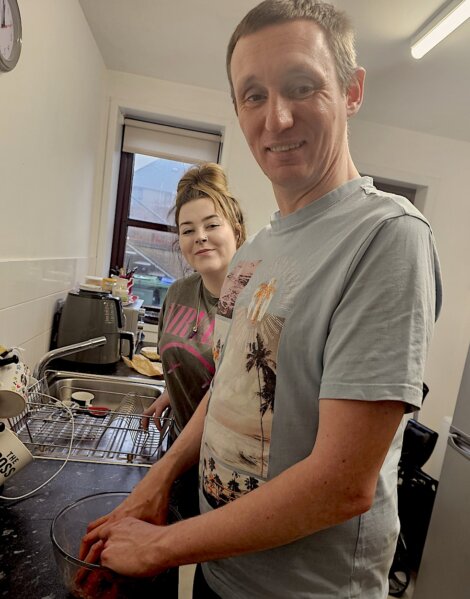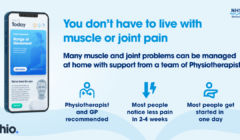Paid for contentSelf-directed support – a different way of providing social care
There are currently vacancies for for around 30 personal assistant jobs available
WITH AN ever-growing demand for people to work in social care, a career in the sector comes with employment security and, usually, high job satisfaction.
Locally, social care provision is mainly provided by Shetland Islands Council, but there is another attractive route into the sector that may suit people looking for more flexible working arrangements.
Self-directed support, or SDS, allows those who require care to choose for themselves what their care package is going to look like and who their care provider – or personal assistant (PA) – is going to be.
Self-directed support has been running for a number of years and there are more than 100 individual care packages in place currently in Shetland, and more PAs to meet growing demand are urgently needed.
PAs provide a highly personalised service that can vary depending on the individual’s unique circumstances, their goals and preference.
They are employed by the client (or their family) and work closely with the individual to tailor their support to meet the client’s needs and aspirations.
Working as a PA for an individual client is very different from the usual way social care is provided, and suits people who are looking to provide a more person-centred service. As a PA, they will play a vital role in enhancing people’s quality of life and help empower those in receipt of care.
Self-directed support allows both parties flexibility in the care provided and room to adapt the service to the needs of the client. Shifts can vary in length depending on the person’s needs.
There are currently around 30 different care packages with vacancies available under the scheme, and range from just a few hours per week to 24/7 care packages.
Details of all the PA packages available can be found at: https://shetlandcommunityconnections.co.uk/pa-opportunities/
Key responsibilities can include (depending on individual contract):
Providing personal care:
- Assisting with daily hygiene (e.g. bathing, dressing, grooming).
- Supporting mobility, including help with walking, transfers, or use of mobility aids.
- Administering or reminding individuals to take medication.
Domestic support:
- Preparing meals or assisting with cooking.
- Performing household tasks like cleaning, laundry, and shopping.
- Managing bills, appointments, or paperwork if needed.
Supporting independence and social inclusion:
- Encouraging and enabling participation in community activities, hobbies, or events.
- Helping individuals maintain relationships and social connections.
- Accompanying them on outings, appointments or holidays.
Enabling choice and control:
- Empowering the individual to make decisions about their life and support.
- Adapting to the employer’s preferred routines and lifestyle.
- Working flexibly to accommodate changes in the individual’s needs or plans.
Health and wellbeing:
- Monitoring for any changes in the individual’s health or wellbeing and reporting concerns.
- Supporting emotional and mental health by providing companionship and reassurance.
Administrative duties (when applicable):
- Keeping records of hours worked or tasks completed (if requested).
- Assisting with aspects of managing the SDS budget, like tracking expenses (if required).
Another reason for the growing need for PAs is the imbalance between supply and demand in the sector.
With the council struggling to fill its many vacant posts in social care, more and more people who are entitled to care but are unable to receive it through the traditional route are looking for PAs under the self-directed support scheme.
Many packages also struggle to get cover over the holidays this maybe a role that would be suitable for students when they come home during their holidays.
It is important to understand that once a package has been agreed, the PA will not be employed by the council but by the client (or their family).
This different approach should however not be seen as an obstacle as help and guidance from the Shetland Community Connections charity is available throughout.
Clients will receive direct payments from Shetland Islands Council which enables them to look for a suitable personal assistant. Once a contract has been agreed the PA will be employed by the client with all the required payroll, including holiday entitlements, sickness pay and pension contributions, usually being dealt with a payroll provider.
Hourly wages are generally in the region of between £14 and £15 an hour, significantly higher than comparable jobs on the Scottish mainland, but lower than what Shetland Islands Council offers.
No formal qualification or training is required, but most employers will look at what experience applicants bring to the table. From April this year PAs are responsible for becoming a member of the Disclosure Scotland Protecting Vulnerable Groups scheme.
For more information on these job opportunities, contact Shetland Community Connections at communityconnections@shetland.org or telephone 01595 745091.
Showcase
Showcases are advertising features paid for by the client.

















